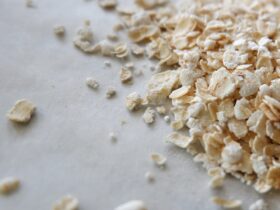Coconut milk is made by blending the flesh of a mature coconut with water until smooth and creamy in texture. It has a very light taste, making it ideal for curries, soups and rice dishes. This article takes a look at all things coconut milk — including nutrition facts and health benefits.
Nutritional Value
Coconut milk is high in saturated fats and can add calories to your diet if consumed regularly. It also contains small amounts of protein and carbohydrates, but it provides no significant amount of vitamins or minerals other than iron and potassium.
Health Benefits
- Coconut milk is high in healthy fats, which support your body’s ability to absorb nutrients and promote healthy cell membranes and hormone production. It also contains lauric acid, which supports the immune system by killing harmful bacteria, viruses and fungi.
- Coconut milk has less protein than regular milk, but its calcium content is higher. It contains about 40 percent more calcium than whole milk, about 20 percent more than low-fat milk and 10 percent more than skim milk. The rest of its nutrients are similar to those in cow’s milk, including vitamin A, vitamin E and potassium.
- The body absorbs calcium best when it’s paired with foods high in vitamin D — such as salmon, yogurt or eggs — because that vitamin helps the body absorb calcium. And since coconut milk doesn’t contain any cholesterol or lactose (the sugar found in dairy products), it’s a good alternative for people who are lactose intolerant or have heart disease.
- Coconut milk is considered one of the best foods for managing diabetes because it has a low glycemic index (GI). This means that it doesn’t raise your blood glucose levels quickly, which means that you don’t have to worry about having an insulin surge after drinking it.





























Leave a Reply